THERE IS NOTHING new about the idea of Irishmen heading to Rome in search of redemption. It’s just that normally they have to work a good bit harder for their sins to be forgiven. Not yesterday.
The long and the short of it is that Ireland did what they pleased en route to a six try, 38-point win and it was hard to avoid raising an eyebrow when the old line about ‘no easy games in the Six Nations’ was trotted out afterwards.
We heard the same thing last year; and the year before; the year before that, too. We could go on. The Italians have now lost 30 on the spin in this tournament since beating Scotland in 2015. At that year’s World Cup, they ran Ireland to seven points. The subsequent results between the two nations tell their own story: Ireland winning 58-15, 63-10, 56-19, 54-7, 26-16, 29-10, 50-17 and now 48-10.
So, no easy games? Are you sure about that?
Far too often we are guilty of unnecessary politeness when it comes to Italy but the truth is that since their arrival into the Six Nations 21 years ago, they have ended up with 15 wooden spoons. Even Jamie Oliver doesn’t have as big a collection.
From being an average team to begin with, they’ve gone backwards and worse again, you just don’t get the impression they’ll ever go forward. In the Pro14, Treviso have lost 12 out of 12 this season; Zebre have managed four victories but two of those were against Treviso. All bar two of the Italian squad are based with those clubs.
So this is the context we have to judge Ireland’s win on. Yes, they did many things well in Rome. At the breakdown, they were too fast and too smart, while their ball-carriers – particular Robbie Henshaw – regularly broke the gainline. And that is before we mention the slickness of the ball handling which led to those six tries.
Nonetheless, all the plus marks in the Irish copybook must be accompanied with a footnote. Doing it against an Italian team – who have lost their three games in this year’s championship by an average of 33.66 points – is one thing, doing it against the Scots or English is another.
Still, Jamison Gibson-Park made an interesting point afterwards about how relieved the Irish players felt to have finally got a victory chalked up on the board and you only have to look across at Wales to get a reminder of what can happen when you gather a bit of momentum in this competition.
That is something that Scotland, Ireland’s next opponents, have lost. After beating England in round one, the Scots have subsequently been defeated by the Welsh and also by Covid-19. On the back of today’s postponement, they are likely to remain idle for four weeks between their second and third game of this championship.
And all of a sudden Andy Farrell will be feeling a lot happier about the prospect of heading to Murrayfield, not least because of what he saw yesterday. Hugo Keenan, scorer of the second Irish try, excelled.
Again.
Henshaw, who made nine carries for 56 metres as well as putting in 13 tackles, also impressed.
So, for that matter, did Will Connors, Tadhg Beirne, Dave Kilcoyne, Garry Ringrose. While we’re dishing out the praise, it has to be said that Gibson-Park is proving to be a better player than anyone is prepared to admit, while his deputy, Craig Casey, is continuing to live up to expectations, delivering 22 passes in 18 minutes of action.
We can go on. The set-piece operated efficiently yet again, Paul O’Connell’s imprint on Ireland’s line-out evident from the very first throw, when Ronan Kelleher threw over the top to Henshaw, a signal of Ireland’s intent.
You have to give Farrell credit for this, too. Coming to Rome, zero from two, he could easily have suggested a conservative outlook for the opening quarter. Instead, he encouraged his players to play with ambition and nerve.
Then again, when the opposition is so deeply flawed, especially in defence and at the breakdown, you can pretty much do whatever you please. It was only when Italy were on the attack that they shaped up impressively, yet even here, the slowness of their ruck ball was shockingly poor.
Ireland took advantage. Connors and Beirne put in big shifts, each possessing a work rate and aggression – and in Connors’ case, an eye for the tryline – that suggests they could sneak into Warren Gatland’s Lions squad via the backdoor.
So may Keenan. Energetic, smart in a positional sense, brave in attack, his first-half try – courtesy of Garry Ringrose’s fine offload – was precisely the kind of thing that Mike Catt, Ireland’s attack coach, suggested Ireland were capable of producing. “The key thing is making sure that the players first see the picture and then make the right decision on the back of it,” Catt said earlier this week.
Here was evidence that they could do what their coach asked of them. Does this mean the team have fully recovered their share value? Or was this a case of dead Catt bounce?
We can’t say – because the tries, the creativity, the offloads weren’t produced against Scotland or England. Scoring against the Italians is something teams are used to doing.
It’s why we can’t draw any definite conclusions from yesterday – except for one. If Italy keep losing in this championship, there really has to be a case made for removing them from it, especially now the South Africans are arriving en masse into the Pro14.
Imagine the Springboks – or an Argentinean side based in Spain – as the sixth nation in this competition. They certainly wouldn’t be making up the numbers.






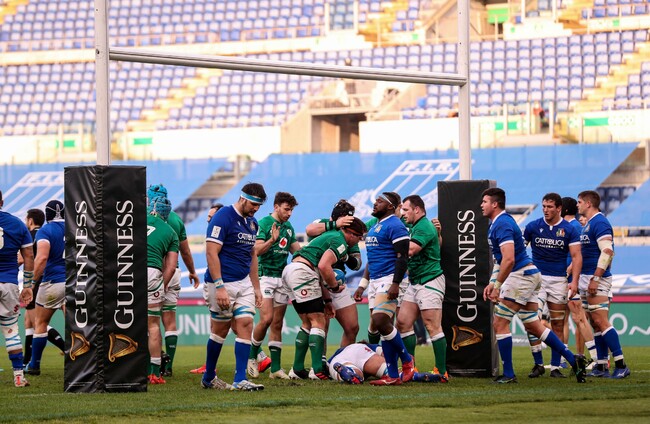

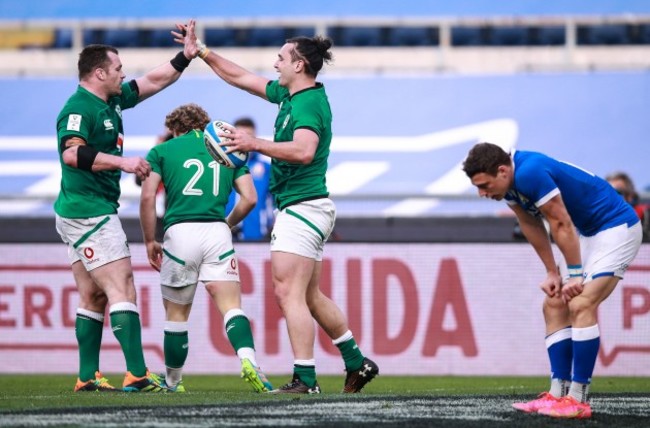
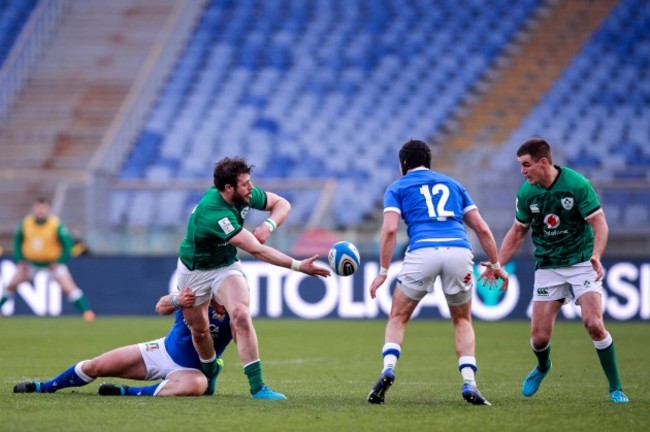
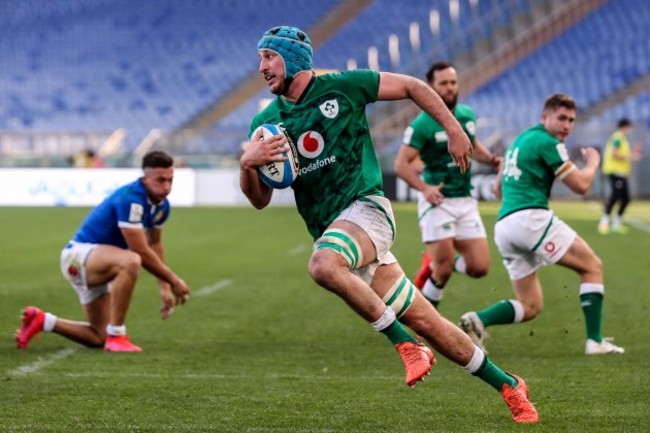
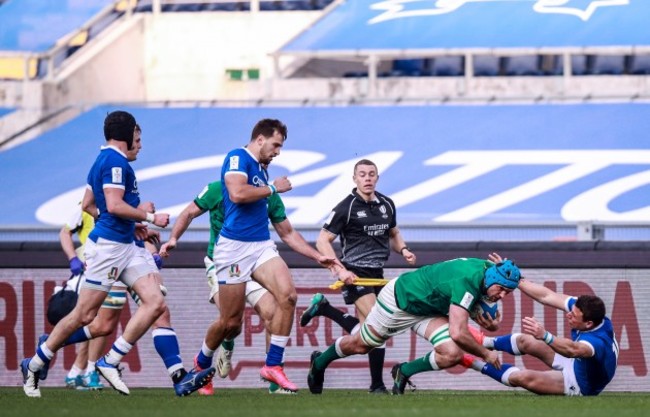



Their just small kids,you can’t do anything to them? Don’t ya just love a heartfelt apology
Spoilt bi*ch
Spoilt wagon !